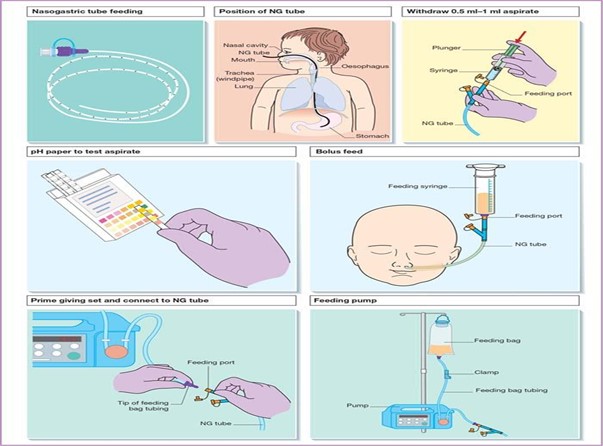A client who is training for a first marathon arrives at the clinic reporting an increase in the frequency of leg cramps. Which recommendation should the nurse provide to help decrease the frequency of leg cramps?
Drink a litter of water during and after running.
Consume a sports drink before and during training.
Eat a high carbohydrate meal after running.
Avoid drinking alcohol forty-eight hours before training.
The Correct Answer is B
Choice A
Drinking a litre of water during and after running is not appropriate: While hydration is important, consuming plain water might not be sufficient to address electrolyte imbalances that can contribute to leg cramps. Drinking excessive amounts of water without electrolyte replacement can even lead to a dilution of electrolyte levels.
Choice B
Consuming a sports drink before and during training is appropriate. Sports drinks are formulated to provide not only hydration but also electrolytes like sodium, potassium, and sometimes magnesium. These electrolytes are important for proper muscle function and can help prevent cramps. Consuming a sports drink before and during training can help maintain electrolyte balance and reduce the risk of leg cramps.
Choice C
Eating a high carbohydrate meal after running is not appropriate. Carbohydrates are important for refuelling muscles after exercise, but this recommendation doesn't directly address the issue of leg cramps during training. Electrolytes like sodium, potassium, and magnesium play a role in muscle function and can help prevent cramps.
Choice D
Avoid drinking alcohol forty-eight hours before training is not appropriate. While avoiding alcohol before training is generally a good idea for hydration and performance reasons, it doesn't specifically address the issue of leg cramps. Electrolyte balance is more directly related to muscle cramping.
Nursing Test Bank
Naxlex Comprehensive Predictor Exams
Related Questions
Correct Answer is ["A","B","D","E"]
Explanation
Choice A rationale: St. John's Wort is an herbal supplement that can interact with various medications, including insulin, and may alter blood glucose levels. It can reduce the effectiveness of insulin, leading to decreased blood glucose control. It is essential for the client to inform the healthcare provider about any use of St. John's Wort to adjust the insulin regimen accordingly.
Choice B rationale: Corticosteroids can increase blood glucose levels by promoting insulin resistance and inhibiting insulin action. Clients with diabetes may require adjustments in their insulin dosage while taking corticosteroids to prevent hyperglycemia.
Choice Crationale: Ibuprofen is a nonsteroidal anti-inflammatory drug (NSAID) that does not typically have a direct impact on blood glucose levels in people with diabetes.
Choice D: Oral contraceptives, specifically combination hormonal contraceptives containing estrogen and progestin, can impact blood glucose levels. They may lead to insulin resistance and, in some cases, increase blood glucose levels. The healthcare provider may need to adjust the insulin dosage for better glycemic control.
Choice E rationale: Epinephrine is a hormone that may transiently increase blood glucose levels in response to stress, but it is not a home medication that the client would be taking regularly.
Correct Answer is A
Explanation
Choice A
Demonstrating correct measurement of the tube insertion length is the first priority. Inserting a nasogastric tube to the appropriate length is crucial for ensuring that the tube reaches the stomach and is not inserted too far. Incorrect insertion length can lead to complications, discomfort, or potential harm to the patient. Therefore, demonstrating and ensuring the correct measurement of the tube insertion length takes priority.:
Choice B
Reminding the nurse to apply lubricant to the tube before insertion is not first priority. Applying lubricant helps ease the insertion process, but it is not the most critical step to prioritize initially.
Choice C
Confirming that the nurse has auscultated the client's bowel sounds is not the first priority. Bowel sounds assessment is important to ensure proper placement, but this step can be done after ensuring the correct measurement of the insertion length.
Choice D
Elevating the head of the bed before the nurse inserts the tube is not the first priority: Elevating the head of the bed helps facilitate the passage of the tube into the stomach, but it is not the first priority in this context.

Whether you are a student looking to ace your exams or a practicing nurse seeking to enhance your expertise , our nursing education contents will empower you with the confidence and competence to make a difference in the lives of patients and become a respected leader in the healthcare field.
Visit Naxlex, invest in your future and unlock endless possibilities with our unparalleled nursing education contents today
Report Wrong Answer on the Current Question
Do you disagree with the answer? If yes, what is your expected answer? Explain.
Kindly be descriptive with the issue you are facing.
